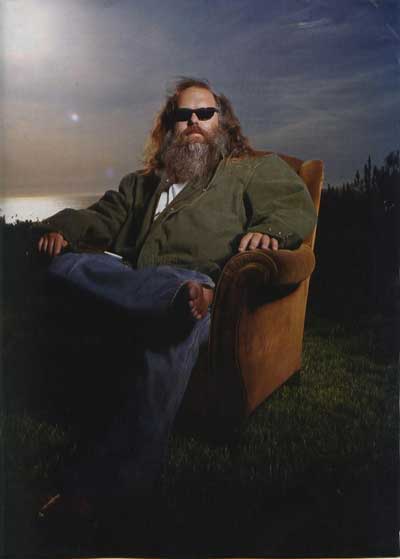
Time mag article and nice photo essay on super-producer Rick Rubin. Link
Rubin is ruthless with his professional time. He’s inundated with requests for his services, so he asks most prospects to drop by and play him whatever songs they’ve been writing. This eliminates most applicants. Few pop musicians, it turns out, are used to regular writing, and even fewer show enough promise in their songs to interest him. “One of Rick’s favorite phrases is ‘metaphor deficient,'” says Rock. “If people write things that are metaphor deficient, even he can’t help them.”
Timberlake passed muster on a piano at Rubin’s house (“That kid is no joke,” says Rubin), while the Dixie Chicks, who were coming off their career-threatening Bush-bashing incident and didn’t have much music to play, piqued his interest over sushi. “It was a weird time for us, obviously,” says Robison. “If he had come in like a car salesman and said, ‘I can totally hear a sound for you all,’ we would have been put off. But he said, ‘I don’t know what this record will be, but you guys have something to say, and it’ll make itself clear as we work.’ Then he made us work 10 times harder than we’ve ever worked before.”
Rubin begins by telling artists that they won’t be going to a recording studio, picking a release date or thinking about a single. “I try to get them in the mind-set that they’re not writing music for an album,” he says. “They’re writing music because they’re writers and that’s what they do.” Months and occasionally years can pass, which is why Rubin often has as many as four projects going at once. He almost never comments on individual lyrics, although he will protest if he thinks something is emotionally untrue. (“He’s great at productive antagonism,” says Chili Peppers’ singer Anthony Kiedis.) Instead, he uses beach walks and quiet meals to get people to open up. “Writing is dull and unglamorous stuff,” says Rubin. “For most people, it’s really pretty miserable. But if you write 30 songs, there’s a better chance that the 10 on your album will be better than if you just write 10.”
By the time everyone decides that there’s enough material to start recording, Rubin usually feels that the work is 90% done. “If a song is great on an acoustic guitar, you can make a hundred different versions of that song and it’ll still be great,” he says. While many producers came up as studio engineers, Rubin says, “I came up as a fan. I’m no expert at the technical aspects” of recordmaking. Kiedis, who has worked with Rubin on five albums, says, “He basically goes into the engineer’s booth, removes everything in the room and has his people bring in the most comfortable couch-bed-type object that you’ll ever see. Then he’ll cover it with pillows and blankets, and that becomes his station.”



